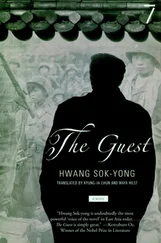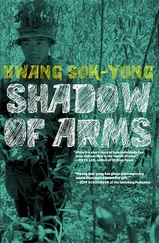This was back when the Republic was still generous, so whenever twins were born, regardless of whether they were in a big city or a remote country village, reporters would show up from the TV stations and newspapers and the babies would appear on the evening news. Thanks to the country’s strong welfare system, babies were cared for in state nurseries and mothers received ample rations of powdered formula, and the Great Leader himself would thank the parents and shower them with gifts, from baby clothes to toys. Quadruplet girls were named after the four noble plants of classical Chinese art — Orchid, Bamboo, Chrysanthemum and Plum Blossom — and there were probably similar matching names for quintuplets and sextuplets. That’s what our father meant when he said he had only been prepared for six girls. My sisters’ names — Jin, Sun, Mi (Truth, Goodness and Beauty) and Jung, Sook, Hyun (Grace, Virtue and Wisdom) — came in sets of three, and no more. Our father probably thought that my being born a girl had turned those complete and perfectly matched names into a meaningless jumble of letters. He had nothing more to say about it. But since the subject had been raised, Grandmother and Mother kept talking after he left for work.
“Little Mother, maybe it’s time we gave it a name,” Grandmother said.
“Name her ‘Sorry’ or ‘Letdown’, because that’s how I feel. Sorry and let down.”
“I have heard of names like that before, but let’s see. You tried to abandon her in the woods …”
And that’s how my grandmother came up with my name. Of course, it wasn’t until much later, after I’d gone to the ends of the Earth and suffered every kind of hardship, that I understood exactly why she named me “Bari”.
*
Our father was raised by his widowed mother. Grandfather died in a war that started long before I was born. Grandmother claims he was a war hero, and that his story had even made its way onto one of the central radio station’s broadcasts. In some faraway seaside town way down in the south, Grandfather had fought off a troop of Big Noses, and singlehandedly at that, as they were rolling in on their tanks. Grandmother would often retell the story after dinner when the trays had been put away, or on summer nights when we would spread out straw mats in the front courtyard and gaze up at the stars. But one night Father got so fed up with hearing it that he butted in, and the heroic tale of my grandfather lost its shine.
“Enough already! Stop it with your stories. That’s all straight out of a Soviet film.”
“What film?”
“That film we saw in town. Don’t you remember? The neighbourhood unit went to see it as a group. You’re mixing it up with Father’s story.”
The plot of the film went like this: a young soldier, still wet behind the ears, falls asleep while standing guard beneath a collapsed building in a shelled-out city. At dusk, his unit retreats, leaving him behind and still fast asleep. Meanwhile, enemy troops roll right in under the assumption that the ruined city has been evacuated. The soldier is startled awake by the noise. He sees tanks, the headlights of army vehicles and the shadowy figures of enemy soldiers coming down the main strip. Terrified, he aims his submachine gun, pauses in absolute bewilderment and pulls the trigger. The tanks stop, and for a moment all is silent. The soldiers halt in unison, then turn and retreat: they believe their enemy is waiting to ambush them in the dark. Only then does the soldier crawl out from the rubble and take off running. He runs all night, and manages to catch up to his unit around daybreak. He’s called before the platoon leader, then the company commander and finally the general, who praise him each in turn and later bestow him with a medal. He’s named a hero for singlehandedly stopping an enemy division, and is rewarded with a special furlough.
Anyway, from what our father told us, it was probably true that Grandfather had been killed in combat on the eastern front. He said Grandmother was called before the People’s Committee and given official notification of his death along with some extra rations in recognition of his services, and when Father went to school, his homeroom teacher had him stand at the podium while she made the students offer up a moment of silence. But Grandmother had already known exactly when Grandfather had died, and had fixed the date for the anniversary of his death so the family would know when to observe memorial rites every year. As always, she had seen what was coming in her dreams.
Late one night, Grandmother heard Grandfather’s familiar cough outside and opened the door. A ray of moonlight shone down on the courtyard, and in it stood Grandfather in a torn military uniform. She asked him where he’d been, and he said he’d walked up the east coast, through the towns of Mukho, Gangneung, Sokcho, over twenty mountains, maybe more, to get to her. He was carrying a bundle of some sort under his arm, so she told him to set it on the twenmaru and come on in, that she would make breakfast for him in the morning; but he said he had a long way to go still, and he kept his shoes on and remained standing. Grandmother quickly took his bundle and set it down, but when she turned back, he had vanished. The courtyard was empty. She awoke with a start and put her hand out. There was something on the floor next to the bedding. When she turned on the lamp to examine it, the wardrobe doors were hanging open and some clothes had spilled out: Grandfather’s padded pants and jacket and the rabbit fur-lined vest he had taken off and stashed in the closet before leaving for the army. That night she hastily scrounged together a bottle of alcohol, dried pollock and some fruit for his memorial table to give him a simple sending off, and burned his clothes to send him on his way.
Grandmother saw ghosts sometimes, and could even hear the nonsensical conversations they had. Ever since our father was young, she would set out a bowl of clean, freshly drawn well water behind the house and pray before it to the gods, but after such things were outlawed by the Republic, she stopped doing it outside and would squat on the dirt floor of the kitchen and pray there instead. Mother and Father tried to stop her at first, and the two of them would get into fights about it.
“Aren’t you supposed to stop her when she starts up with that black magic?”
“ Aigo ! Do you really think your mother’s going to listen to me? She scares me with all that ghost talk. I don’t dare say a word about it. Besides … doesn’t it run in your family?”
“What do you mean, ‘runs in my family’?”
“Well, she said your great-great-grandmother was a shaman in Hamheung.”
“Watch your mouth! Don’t you know what kind of trouble we could get in if you start spreading that nonsense around?”
“But when I married you, everyone in your village knew that your great-grandmother and your great-great-grandmother were powerful shamans before Liberation …”
“Damn it, woman! Keep it down! We’re descended from poor farmers. That means we’re part of the core class.”
Grandmother said that Father had been a good student ever since his days at the People’s Primary School. Right after the war, when the Chinese People’s Volunteer Army was still stationed in the city, he had picked up some Chinese here and there and would even go to the base with the older folk to help settle civil complaints. He graduated first in his class from secondary school and even received a recommendation to attend university in Pyongyang.
Our parents wound up married to each other due to our grandmother’s meddling. Father had completed his labour mobilization during summer break from his first year of university, and found a spare week to return home for a visit only to discover a girl waiting there for him.
Читать дальше












